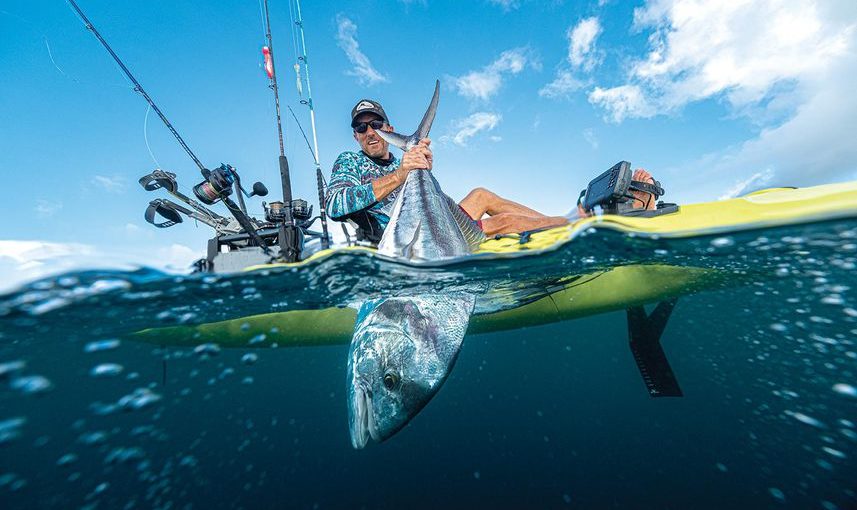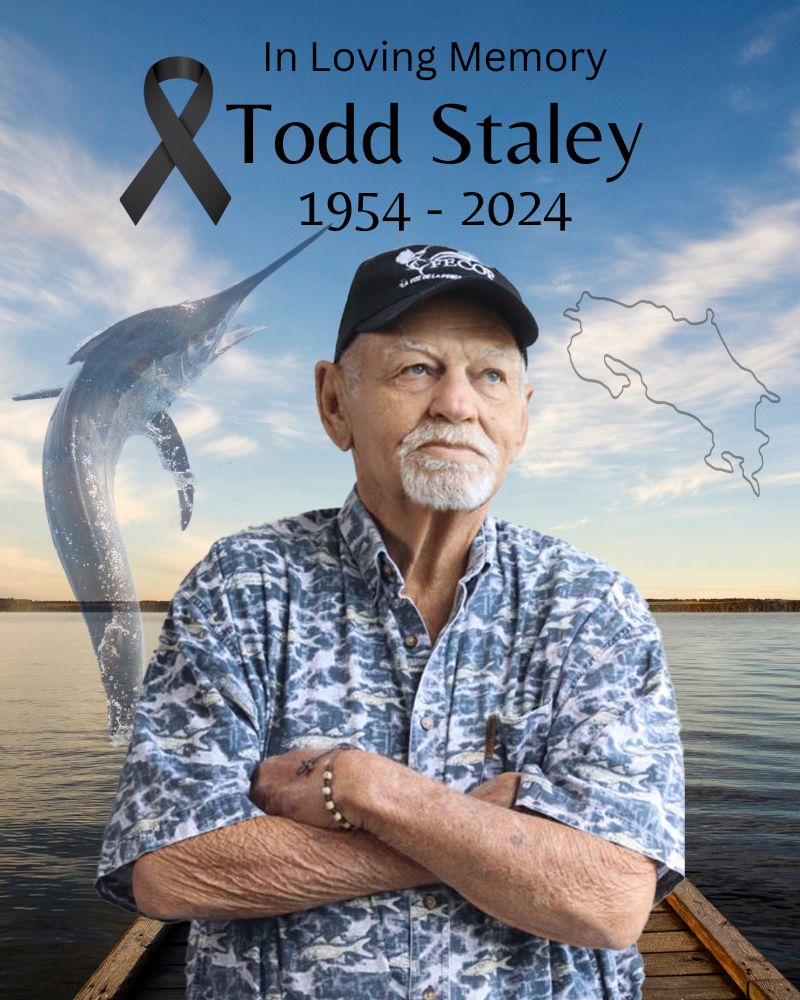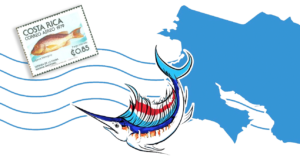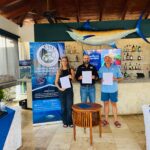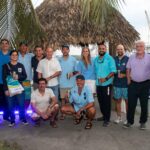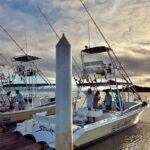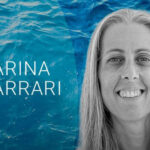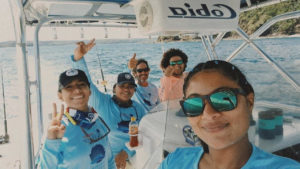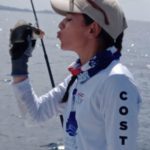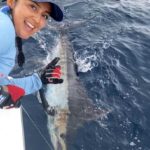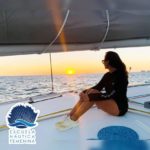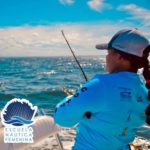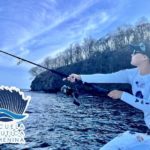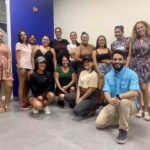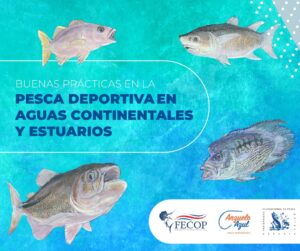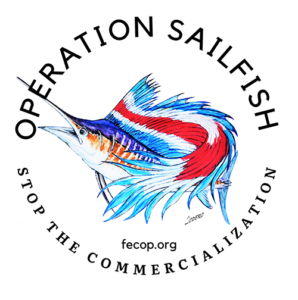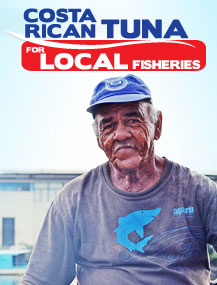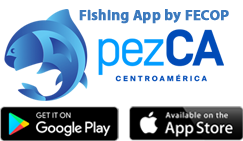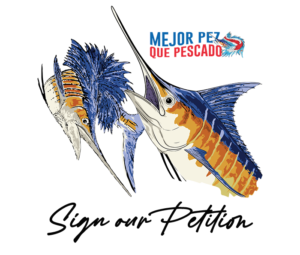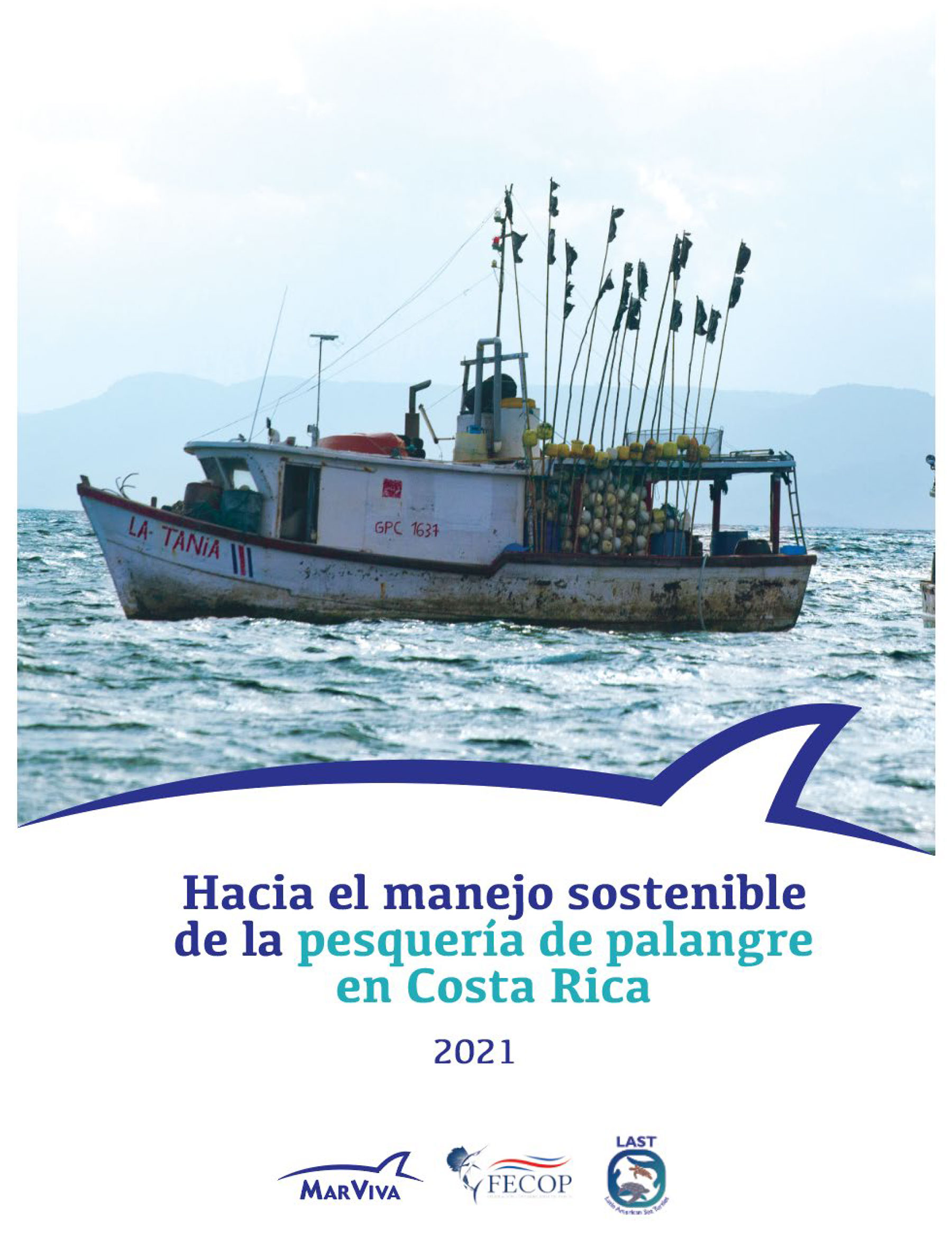Kayak Fishing Saved Lance Clinton’s Life
One of the top big-game kayak anglers in the world is preaching the gospel of the surf from his hideaway in Costa Rica
Pictured Above – Lance Clinton with a big rooster caught in his home waters of Jaco, Costa Rica. Agustin Muñoz
The rip of his drag sounds like a kicked hornets’ nest as I pedal my kayak toward him. The sun breaks over the cloud-ringed mountains and casts a sapphire light across the bay—an Instagram sunrise, for sure. And in the center of it all is Clinton, an American expat and recovering drug addict, on his dirty 12-foot kayak, rod bent in half, a boss yellowfin taking line.
At 50 years old and 17 years sober, with a growing name in the elite world of big-game kayak fishing and a new turn in his career as a top-flight knife designer, Clinton’s insane, drug-crazed past feels like a different lifetime now. His only present concerns are the fish he’s tied to and me getting my line in the water.
“Bro, cast that popper!” he hollers as I get close. “Cast!” So I fire the plug, and as soon as it hits water, the rod behind me that I’m trolling with Clinton’s all-time favorite bait, a Yo-Zuri Crystal Minnow, lights up with that heart-thumping sound of 45-pound braid smoking off the reel.
“Set it! Set it!” he howls, still fighting his fish. I set the hook with everything I’ve got, and despite the light drag and the give of the kayak, the yellowfin pulls me guitar-string-tight and spins the nose of my boat. Then we see Clinton’s fish thrashing to the surface between us. The exhausted yellowfin comes up sideways, floating like a lost lifeguard float. It’s every bit of 30 pounds, maybe more.
“Duuude,” I say in a reverent tone.
“Dude is f—king right, buddy!” he says with a laugh. Then he looks up at me. “Reel!”
Expats like to call Costa Rica ‘home of America’s most and least wanted.’ it’s Like Hemingway’s Key West—but with surfers and yoga pants.
Expats like to call Costa Rica “Home of America’s Most Wanted and Least Wanted.” It feels like what I imagine Hemingway’s Key West was like—but with surfers and yoga pants. Going all the way back to Billy the Kid, there’s a history of Americans hiding out in Central America. Clinton, who moved here 21 years ago, says that more than once, he’s made an acquaintance who has eventually disappeared. Inevitably, someone will say, “Hey, remember Larry? Interpol picked him up. And his name’s not Larry.”
Clinton’s beginnings in-country were less criminal but still drug-fueled. He hit rock-bottom at the Hotel Talamanaca in 2002, covered in his own feces and vomit, writhing on the bathroom floor. That was the last time he used drugs or drank alcohol. But when I ask him about that story and the trajectory that led him to bottom out in Costa Rica, he starts at an unlikely place: football practice in north Louisiana when he was 13 years old.
“The very first drill, the coach asked, ‘Who wants to run the ball?’ Silence. ‘I do, Coach,’ ” Clinton remembers saying. He absorbed the first hit and kept moving, but the second kid nailed him. When he pulled himself up off the field, his arm was broken at the forearm and bent in a full U-turn.
The doctors gave him a shot of Demerol in the butt. The relief was instant—in his arm and his mind. “You’ve got to understand,” he tells me, “I was a fearful little kid. I had this sense of insecurity, this sense of unreality, for a year or two at that point. For the first time in my life, everything was A-OK. I was completely at peace.”
From the very beginning, he says, he wasn’t addicted to the feeling of being high, but to the absence of fear and insecurity.
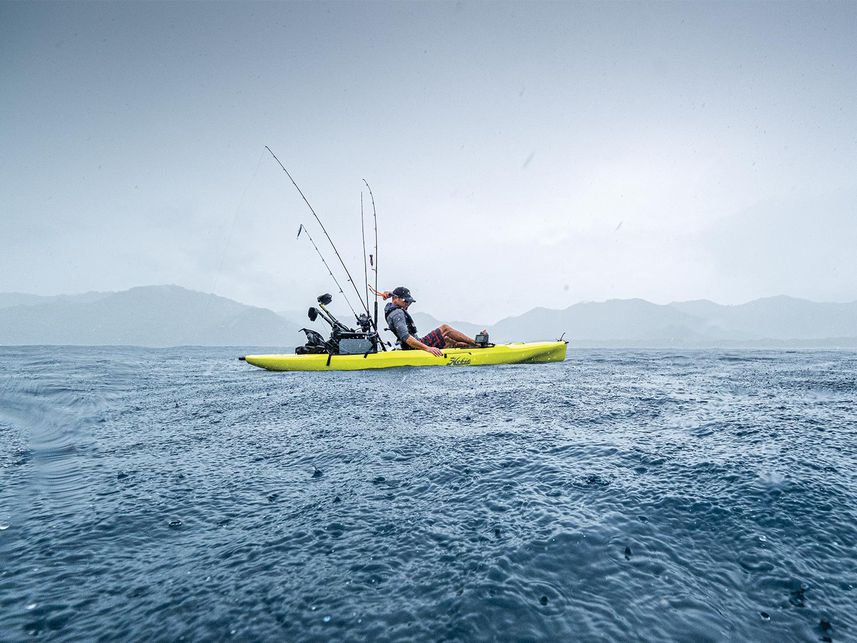
Before the ridiculous tuna action up north, I spent two days fishing with Clinton near his home in Jaco, about two hours southwest of San Jose. Clinton has designed his life here around the water, like some kind of sober fishing monk.
He wakes up at 3:30 a.m. every day, prays, writes a graduated list, meditates, then goes fishing at first light on Sunday, Monday, Wednesday, and Friday. On Tuesday, Thursday, and Saturday, he goes surfing at sunrise, then to a local recovery meeting in town. “I believe in routine now,” he tells me.
It’s 4 o’clock in the morning, and I stumble through the front door of his condo painfully in need of coffee. As soon as his door opens, I’m overwhelmed by the stink of fish. The whole condo reeks of it. Inside, the kitchen counter is covered in tackle. Broken rods are piled in the corner. There are dishes in the sink, and his bull terrier, Sandy, is pacing around like she needs to go out. Conditions are spartan. Some furniture. Guitars on the wall. Mostly, it’s fishing gear and knives.
“The look on your face says I’m doing life wrong,” he says with a wry smile. He reads me right. At the moment, Clinton’s life feels a little adolescent. “Well, my potential is, I’ve learned how to go fishing and surf every day with the least amount of effort possible.” He takes a deep breath and offers me some coffee. “This life is not for everyone.”
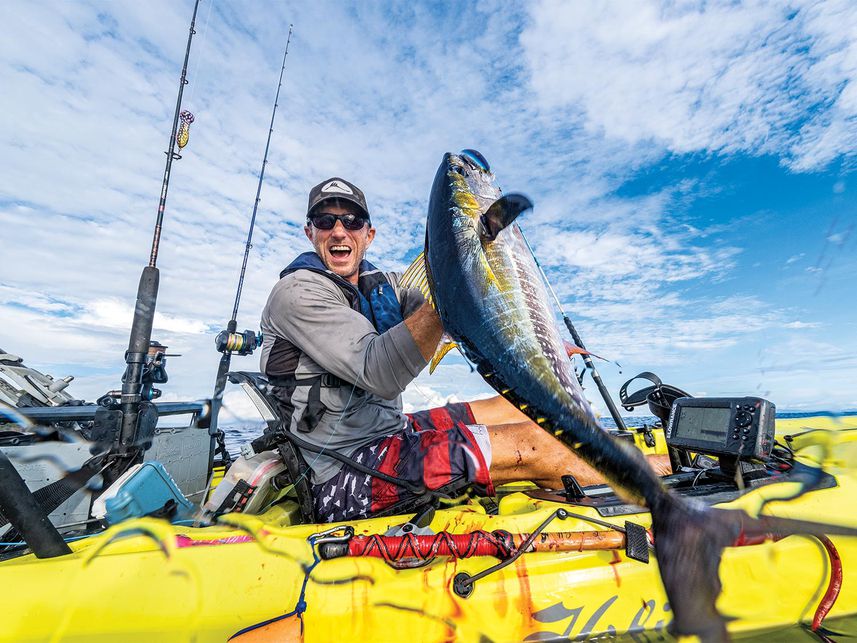
A few months after 13-year-old Clinton’s arm healed, he found a shoebox of pain pills in his parents’ bathroom. He’d pocket a pill here and a pill there. Soon he was robbing friends’ medicine cabinets. “I wasn’t a hell-raiser out skipping school and shooting cats with BB guns. I was just a kid, hooked.”
He made it out of high school and went to Louisiana State University, becoming a classic collegiate binge drinker. After graduating, he worked for the family’s insurance business and soon was pulling in more than $100,000 a year in commissions. He started doctor shopping with a roll of cash in his pocket. This was the early 1990s, and prescription medicine wasn’t available on the street like it is today. He’d talk his way into a pill for a backache, for a twisted ankle, for an imaginary flu. That chronic sense of not belonging, “the unreality,” as he likes to call it, never left him. The problem, he soon came to believe, wasn’t him or the pain pills, but the place—north Louisiana. After a brief stint in rehab, where he met an investment banker, he studied up and quickly passed the Series 7 exam—to this day he can do math in his head faster than most people can run a calculator. He became a licensed stockbroker at 25 and moved to Seattle.
Soon he was living like the Wolf of Wall Street. He had an apartment on First Avenue, between Battery and Wall. He owned a BMW 725i and a Harley motorcyle. But the lessons he learned in rehab didn’t stick. Eventually he got the flu, and the doctor gave him hydrocodone, and it was right back to his old habits. That window of “functional” that he had operated in for most of his life got smaller and smaller. Soon he found himself either too stoned to work or too dope-sick to do anything but lie around. Then, back in the days when email was a new thing, he got a spam message from an offshore sportsbook.
He called the number and talked to a guy he’ll never forget: Mark in Marketing—an American guy from Texarkana living in Central America and making his living off the commissions of sportsbook accounts. Down here, Mark in Marketing told Clinton, booze flows in the streets, the women are beautiful, you can surf every morning, and drugs aren’t illegal. Clinton asked where exactly the sportsbook was located.
“Costa Rica,” Mark in Marketing said.
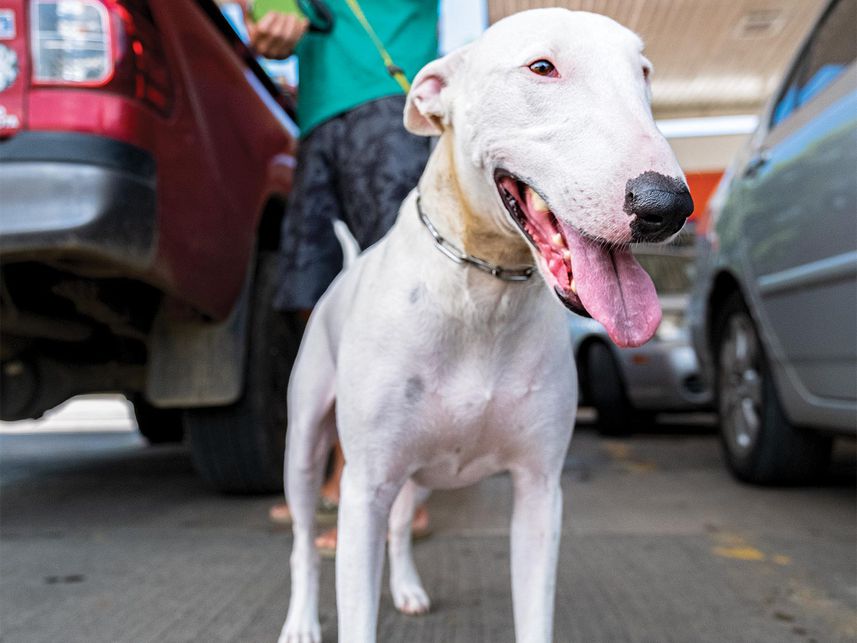
“Reel!” Clinton barks at me in Culebra Bay.
While I crank in my first tuna, he pops the 30-pound giant with a custom-made gaff—the point slant tweaked for a better connection from the low attack angle of a kayak. My 20-pound fish is in the boat now. I stick it in the gills with a knife Clinton designed, the first of two he worked on this year with Spyderco.
Big mistake.
Blood runs over my lap, feet, the pedals, and the controls. While I make a mess of things, Clinton is already hooked up to a second yellowfin. “Get that Crystal Minnow in the water!” he hollers. Past him, I see a school of porpoises a few dozen yards off running parallel to his kayak. I cast the lure behind me, and the porpoises are there again. They’re circling us. The water under and around our kayaks starts to boil with baitfish.
With a few cranks of the handle, the whole rod vibrates, the tip shakes, and then the hornets are back with that sweet sound of ripping drag—zzzzzzzzzzzzzz. I’m hooked up again. Clinton points to the porpoises flashing below us.
“They’re herding tuna,” he says. We happen to be right on top of it. Before long, three more yellowfins meet the gaff.
Later, we catch an amberjack, which we’ll also take to town to trade for meals at the Thai restaurant.
“I don’t want to skull-drag fish out here just for kicks,” Clinton says. He catches enough fish to eat seafood twice a day, every day, or to barter with in town. “Eating them is the reason to be out here dude.”
Thanks to Mark in Marketing, Clinton opened a sportsbook account, then bought a plane ticket to Costa Rica. He told his parents he was going to Central America and watched them deflate. He had just moved home from Seattle and bought a house, and they thought he was straightening out. He liquidated everything he couldn’t fit in a backpack and cleared $30,000. In Costa Rica, he felt like a king.
Narcotics were easy to get. In 1995, OxyContin hit the U.S. market, and it slowly came to Central America, but by the late 1990s, it was on.
“That shit is pharmaceutical-grade heroin,” he says. “It shouldn’t even exist. It’s way more psychologically addictive than morphine. You can trust me. Think about this: In 2008, if you told someone you took morphine on a daily basis for pain, people would jump out of their skin. Morphine! Oh my god! OxyContin is way more addictive than morphine.”
He pissed away $10,000 in the first few months. Out of fear he’d lose it all, he parked the remaining $20,000 in an investment fund that turned out to be a Ponzi scheme. But until that fell apart, he scraped by on the $600 dividend it paid a month. Three years into living the Costa Rican life and partying like Nikki Sixx, Clinton heard about a cancer hospital in Ecuador that had a pay-to-play policy on Oxy. He flew there under the guise of a surfing trip and loaded up. Just 35 days later, he found himself on that hotel bathroom floor.
He had tried to get sober before but never really took it seriously. This time, though, he thought that he was dying. In his wallet, he had the number of a guy he had met at a recovery convention in San Jose during a weeklong attempt to get clean months before. Oscar—a Costa Rican man who barely spoke English, a total stranger really—drove to the hotel, cleaned up Clinton, and then drove him out to the mountain town of Cartago, east of San Jose. Clinton lived with Oscar and his family in a small guest room with nothing but a twin mattress on the floor for three months.
Clinton’s Spanish was sloppy back then. In the recovery meetings he attended, he understood maybe 50 percent of what was said, but he sat there and listened and stopped asking questions. “There’s a saying: ‘Take the cotton out of your ears and put it in your mouth,’ ” he tells me. “That’s what I did.” They told him to get on his knees and pray every morning. He did. To make his bed. He did. To make phone calls and go to meetings if he had the desire to use.
Surfing and fishing became conduits for self-improvement. They were things he did to get his mind right, and they were things he enjoyed because his mind was right. “What moving here did was put me in touch with the idea that maybe I don’t have to suffer for the rest of my life. And it also showed me that, holy shit, I’m the problem. Surrounded by God and beauty and nature—not the four walls of an elevator going up to a job I hated. I was in something beautiful, and I was the broken piece of that puzzle.”
He relates this new approach to life with what it takes to be successful at kayak fishing. “It’s about the harmony, dude—a deep immersion in the environment, in the present. There’s a larger spiritual connection that happens for me out there. I look up and see whales breaching or the mountains ringed with clouds, and I feel the reality of God’s creation. For just one second, I’m aware of that, and I know I’ll be OK. It’s not the whale, or the mountains, or the fish I’m catching—it’s my ability to connect to that larger reality. It’s seeing, for just one second, that that is reality. A small mackerel can open up the universe if you let it.”
After Clinton got clean, he’d wake up early and surf at first light. He always saw this other American, Joel, out there too, zipping through the waves on a tiny Zodiac that looked like a pool toy in the surf. One day, on the beach, Clinton asked him what he was up to, and Joel pulled back a tarp over the dinghy and showed off eight or so mackerel and a couple of small roosters. “Want one?” he asked Clinton.
Walking home from the beach while carrying his small gifted fish, a bunch of Ticos—the term for native Costa Ricans—hollered out at him. “Que bueno! Pura vida!”
“ ‘Pura vida’ is the Costa Rican national saying,” Clinton tells me. “It translates to ‘pure life,’ which is pretty cool if you ask me, and it’s used like ‘all good’ or even ‘thank you,’ like ‘pura vida, bro.’ ”
Walking home with that fish and getting shout-outs on the street, something about that resonated with Clinton. “It’s so embarrassing to admit that,” he says. “But it’s true.”
“That you wanted to be cool?” I asked him.
“Yes, but also deeper than that. I felt like Ugg the Hunter, bringing my fish, which wasn’t even my fish, back to the cave. It was primal. It connected to something deep inside.”
Soon he got his own rod and reel. Then he bought a used Hobie for $800.
For those first few months he caught nothing. Finally, he asked another fisherman what to do, and the guy said, “Get some Crystal Minnows.” So he did, and his fishing strategy for the first year was just to pedal fast with a line in the water. He started catching baitfish—mackerel and jacks. He ate them all.
“The thing you have to understand about Lance is, once his mind is on something, anything, he’ll rise to the top,” says Paxton Marrs, a lifelong friend who Clinton helped overcome a painkiller addiction of his own. “In college, or as a stockbroker, when he puts his mind to something, he’s able to crush it. His determination, his perseverance, his focus is like nothing I’ve ever seen.”
With no money for electronics, Clinton looked for patterns in the water, his eyes honed from decades of surfing. Current eddies, trash lines, seams in otherwise open sea. He got into jigging at those spots, which kicked off his cubera obsession—those 30-, 40-, and 50-pound snappers with a head straight out of the Jurassic period. Giant cubera are reluctant to take a bait, and when they do hit, they usually dive sharply for their rock hides on the bottom, where they break off the line.
Clinton focuses intensely on his lure presentation. “I’m of the opinion that in the fishing world, at least the saltwater fishing world, far too much importance is given to lure design, and especially color. I think about this all the time. It’s a parallel to life. People always ask the wrong questions. They’re like, ‘You have a good life in Costa Rica,’ then jump right to, ‘How much does it cost to live there?’ That’s not about why or how I have this life. I’ll consistently post pictures of good fish on Instagram, and the questions are always the same. ‘What color lure were you using?’ It just doesn’t make a difference. The lure’s action matters. The presentation matters.”
Depth finders are a new addition. Last year, before taking third at the Worlds in Panama (an elite kayak fishing tournament that draws big-game anglers from all across the globe), Clinton realized he needed electronics to be competitive on new water.
“Lance is about the plan, the method, and perfecting it,” Marrs says. “Even the knots he ties. They’re perfect. The fishing knife he wanted didn’t exist, so he designed it.”
After our tuna blitz dried up in the bay, we pedaled closer to shore to try a different game. Casting close to the rocks, I can hear distant howler monkeys way up high in the jungle, barking above, and the chop, chop, chop of our poppers breaking water, skipping the surface. The clouds mingle with fog that rolls down to the waterline like white gauze. The ceiling of the world feels low today, like there’s more space below our kayaks than in the sky above. We’re calling sea monsters. Chop, chop, chop.
“See that point,” Clinton says, throwing his arm west to a rocky cliff over the sea, “to that point,” he marks a dimple in the coastline to the right of a white-sand beach, “to this bottom spot—it makes a triangle. Middle of the triangle is where we hit all those tuna.”
He sets off in that direction to work the edge of our imagined isosceles. Soon I hear a whistle. “Fish on!” he yells across the water as a big dorado is tail-walking on the end of his line.
Clinton’s friend and kayak fishing guide, Gary Sálazar, who came out with us this morning but vanished early to find bait, appears on the horizon.
Sálazar rigs me up with a live skipjack and sends me toward the apex of our tuna triangle. When I’m 60 yards out, I hear him holler: “Count to five, throw lever.” He means that on a strike, to give the fish five seconds to down the bait, then throw the lever on the baitcaster that tightens the drag. I pedal away, and I hear him yell again. “Slower!” He’s standing up in his kayak and pumping his arms like bicycle pedals. “Pedal slower!”
I do, and like magic, I get a strike. Line rips off the reel for five seconds, then I flip the lever. The line pulls tight, and a big dorado goes aerial.
“Fish on!” Clinton yells, 100 yards away. He’s on his second mahi now. We fight them in side by side.
Then, out of the corner of my eye, I spot another bull dorado jumping 40 yards out. He’s flying across the water, down and out, down and out, after baitfish. I twist around in my kayak seat and cast the popper to where I think he’ll be. The big Nomad plug splashes down, and the dorado is airborne again, this time with my lure. I set the hook, and the fish starts ripping drag. “Did you see that?” I yell. I can hardly believe it, but Sálazar and Clinton have their own fish to fight.
The big bull dorado arcs against the fog-ringed mountains and low morning sun. It jumps again and again, flashes of green and blue on the jungle sky. Every time I get him close to the kayak, he runs again, then jumps. I’m not a religious person, or even a believer. But right now, on this water, in this place, I understand what Clinton means about feeling a connection to something universal, something larger.
After 15 minutes, I get the big bull to my lap. He’s longer than my leg. We’re both exhausted.
Clinton pedals over, beaming. “Pretty sick,” he says. In a way, since he’s gotten sober, he’s maximized his life for these kinds of days. He’s worked odd jobs, bought and sold Land Rovers, brokered a few real estate deals, and managed to cobble together enough money into a small market account that keeps him afloat. But, like he says, that stuff doesn’t really matter. What matters is that he went for it. In his 17 years sober, he’s divorced himself from the rat race. Still, I wonder, even in the beauty of all this, if he feels like he’s missing something.
“I guess if I’d had kids, things would be different,” he says as we pedal back toward the beach. “I got sober in my 30s. That really wasn’t in the cards for me. But I wouldn’t trade my life with anyone.”
We had listened to sports radio in the truck on the way to the beach that morning, so I ask him, “What about Tom Brady?” The GOAT. More money than God. Fame. Supermodel wife.
“Dude,” he says, “Tom don’t get to fish every day.”
You Might Also Like:
How and Where to Catch Trophy Roosterfish
How to Catch Yellowfin and Bigeye Tuna in Costa Rica
An Anglers Guide to Billfish in Costa Rica
More Articles from The Fecop Vault
[post-carousel-pro id=”5407″]
Subscribe to Our Mailing List
[yikes-mailchimp form=”1″]

